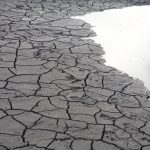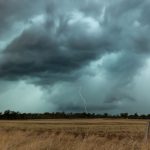 July 2, 2020 7:00 pm
Published by Climate Extremes
July 2, 2020 7:00 pm
Published by Climate Extremes
The first comprehensive worldwide assessment of heatwaves down to regional levels has revealed that in nearly every part of the world heatwaves have been increasing in frequency and duration since the 1950’s. The research has also produced a new metric, cumulative heat, which reveals exactly how much heat is packed into individual heatwaves and heatwave seasons.
 June 30, 2020 10:11 am
Published by Climate Extremes
June 30, 2020 10:11 am
Published by Climate Extremes
Kim Reid describes everything you ever wanted to know about atmospheric rivers, and then some. Front, Warm Conveyor Belt, Atmospheric River, Tropical Moisture Exports and Flexible Tubes. Are these phrases describing different phenomenon or are they merely alternative names for same system?
 June 4, 2020 9:50 am
Published by Climate Extremes
June 4, 2020 9:50 am
Published by Climate Extremes
This project seeks to better understand the changing nature of Australian droughts by synthesising satellite and ground observations in combination with state-of-the-art climate model projections.
 June 4, 2020 9:04 am
Published by Climate Extremes
June 4, 2020 9:04 am
Published by Climate Extremes
CLEX researchers have developed Australia’s longest daily temperature record, identifying a decrease in cold extremes and an increase in heatwaves around Adelaide since 1838.
 June 2, 2020 10:50 am
Published by Climate Extremes
June 2, 2020 10:50 am
Published by Climate Extremes
An analysis of new climate model projections by Australian researchers from the ARC Centre of Excellence for Climate Extremes shows southwestern Australia and parts of southern Australia will see longer and more intense droughts due to a lack of rainfall caused by climate change.
 June 1, 2020 10:58 am
Published by Climate Extremes
June 1, 2020 10:58 am
Published by Climate Extremes
PhD opportunities are now available to work on projects jointly supervised across the ARC Centre of Excellence for Climate Extremes (CLEX) and Bureau of Meteorology. Candidates will be enrolled in one of the CLEX universities and spend significant time at the Bureau of Meteorology. This will allow the student to experience both the University academic and the publicly funded research agency environment.
 May 26, 2020 11:48 am
Published by Climate Extremes
May 26, 2020 11:48 am
Published by Climate Extremes
Charuni writes about the stress of facing a PhD confirmation during a pandemic and how doing a PhD has changed her attitude to herself. She also suggests some approaches that have made the confirmation process a little easier.
 April 28, 2020 3:06 pm
Published by Climate Extremes
April 28, 2020 3:06 pm
Published by Climate Extremes
New study finds ocean heat asymmetry between hemispheres can be explained by natural variability in the climate system superimposed on long-term ocean warming.
 April 15, 2020 11:21 am
Published by Climate Extremes
April 15, 2020 11:21 am
Published by Climate Extremes
Models used to project future climate change, and impacts of climate change on plants and ecosystems, currently assume that mature forests will continue to absorb carbon over and above their current levels, acting as carbon sinks. The findings from this research suggest that those sinks may in actual fact be weaker or absent for forests on low-nutrient soils.
 March 11, 2020 10:47 am
Published by Climate Extremes
March 11, 2020 10:47 am
Published by Climate Extremes
This report responds to a request by the National Climate Science Advisory Committee (NCSAC) for input to its strategic discussions in the area of climate processes research. Specifically, it summarises the current state of climate processes research in Australia, identifies gaps, and provides options for moving the area forward into the next decade.










